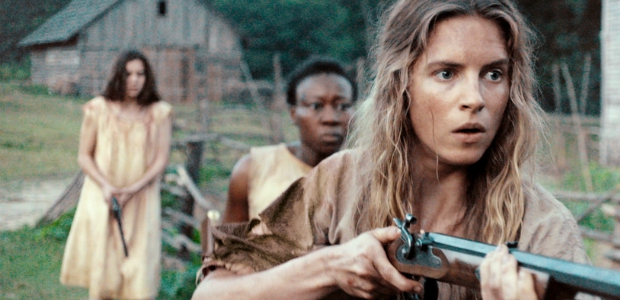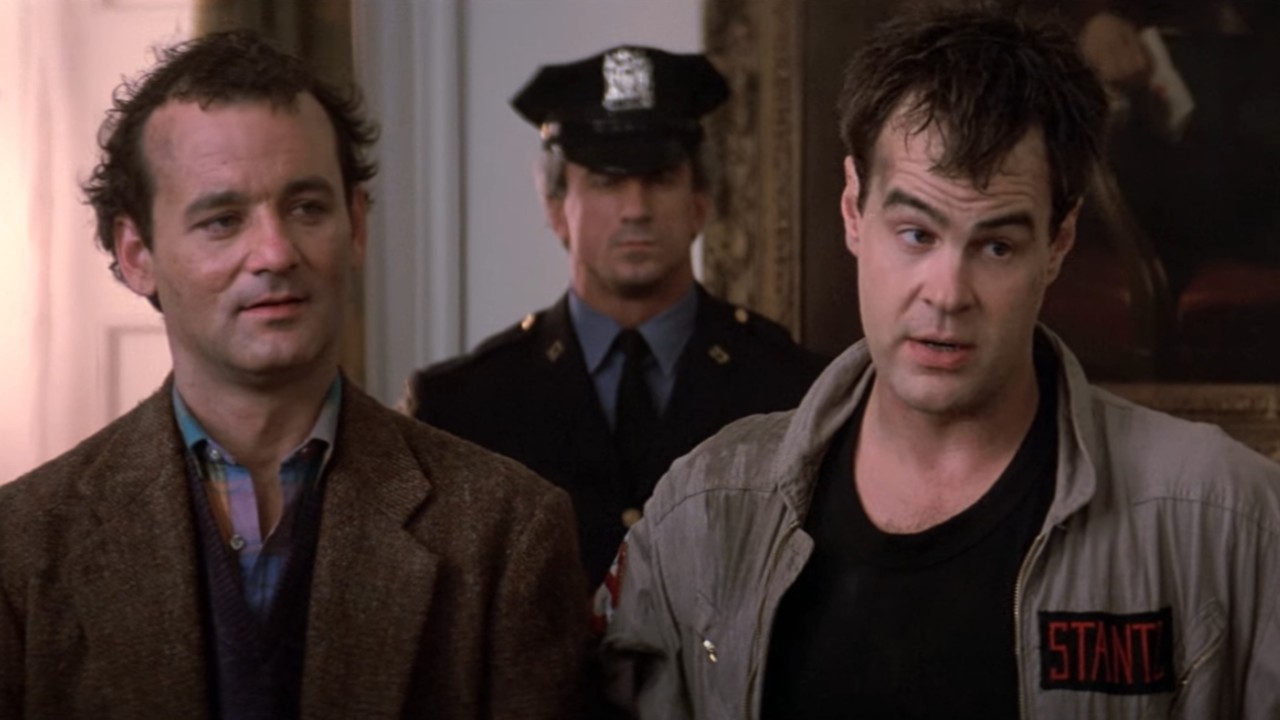British director Daniel Barber’s left-of-center Civil War drama The Keeping Room begins with a moment of shocking violence that casts a long, ominous shadow. This introduction paints a picture of the South as a lawless, damn-near post-apocalyptic frontier, and even in quiet, almost idyllic scenes to follow, it’s impossible to shake that feeling.
Plotted like a feminist take on an exploitation-style revenge film, though one dressed up with intricate lighting cues and weighty themes, The Keeping Room follows three women trying to keep to themselves and avoid the trouble going on outside of their purview. Sisters Augusta (Brit Marling) and Louise (Hailee Steinfeld), and longtime family slave Mad (Muna Otaru), live on their remote plot of land—Augusta hunts, Mad works the field, and Louise is a peevish brat with no real clue what’s going on. They’ve survived this long by hiding out and staying isolated, and you know this can’t possibly last.
This quiet, almost dreamy aesthetic is shattered when, looking for medicine, Augusta goes into town and encounters two drunk, violent northern soldiers, Moses (Sam Worthington) and Henry (Kyle Soller). What follows plays out like an updated Straw Dogs, grim, bleak, and tense as the three women are besieged by outside forces.
A striking revisionist western, the women don’t talk much, even though there is a lot to say. On the surface, The Keeping Room is not explicitly about war and race and slavery and rigid gender roles, but the weight of all of those is inescapable. It’s rare to see a story about how war affects those who aren’t on the battlefield. Somehow the image of a shirtless Augusta fiercely brandishing a musket, a powerful image to be sure, says more than any of the dialogue, and underlines the urgency of their situation.
Despite mixed feelings on Marling—I adored her in Sound of My Voice and hated her in Another Earth—she delivers a fierce, expressive performance here, tough and wounded, essentially the matriarch defending her family in the absence of anyone else to take that role. Steinfeld adds to an eclectic year that includes roles in the a capella comedy Pitch Perfect 2 and pint-sized teen assassin actioner Barely Lethal, playing an entitled, petulant teen. It’s Otaru, however, who is the true revelation in The Keeping Room. She scarcely speaks in the early going, a fact that gives her words that much more power when they do come, but conveys great depth with a look or a remarkably nuanced expression. And though she may be a slave, she won’t let either of the others think she’s not their equal.
The two men exist as little more than monsters for most of the film—and as Mad says, there are many kinds of monsters in the world—turned animalistic by the horrors the endured in the war. Henry, especially, practical froths at the mouth at the idea of getting his hand on these women, and they’re on a similar level as their do vicious dog, Battle. Near the end, you realize how aware Moses is of his frayed humanity, and the inevitability of what has and what will come, but it feels a bit too late in the game to humanize them.
Julia Hart’s succinct Black List script transforms the spare drama of the first act into a second act home-invasion thriller with muskets, and as a revenge tale, though one that tweaks the formula, in the last act. And each shift brings new narrative angles and elements into play that further expand your view of this world and these characters.
Despite being a relatively low-budget affair, one concerned with many contemporary themes, there is very little else modern about The Keeping Room. None of the three primary performers betray any current affectations, and the period production design is spot on. Martin Ruhe’s gorgeous cinematography relies largely on natural light, giving the film the look and feel of authenticity.
Despite their differences, Augusta, Louise and Mad are in this together, as a single cohesive unit. Even as everything tries to keep these women down, to suppress them, they maintain a grip on what is their own and seize control over their destiny, a fact driven home as they burn it all down, figuratively and literally, and walk away. In fact, the film wraps up in perhaps the most interesting moment, leaving these women of the precipice of something new and alien. Some will feel left in the lurch, while others will surely embrace the possibilities such an ending presents.
[[ br. despite being a quiet though one punctuated by firefights and moments of sheer ]] The Keeping Room is a unique, enthralling movie from start to finish.
Chris Evans Pens Sweet Tribute To ‘Older Sibling’ Scarlett Johansson, And Now I Really Need To See Them Team Up For Another Movie
Bowen Yang And Kelly Marie Tran Open Up About Crew Members Sharing What It Felt To Work On A Queer Set For The Wedding Banquet: 'It Just Felt Really Magical.'












